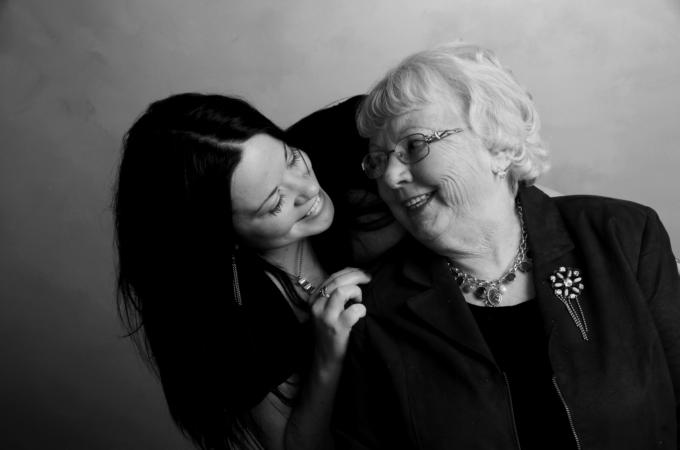On legacy and life review
When we grow older, the idea that we have lived a life of purpose becomes more important. This notion is closely tied to how we view our past accomplishments, as well as how we would like others to remember us after we are gone. It is the work of "legacy discovery," an important part of aging, though one that is not always clear cut.
Legacy discovery is a work in progress. Most older adults can point to many, unique contributions they have made throughout life. They have raised strong and loving families, held important roles in business, served their country and participated in society at every level. Sifting through so many memories and achievements can be daunting. While the word "legacy" might be difficult to get your mind around, the desire to make a lasting mark on the world is one we can all understand.
"Most people think 'money' when they hear the word 'legacy,''' says Maria Benoit, Chaplain and Director of Spiritual Care at Youville Assisted Living. "Even in cases where money is involved, legacies are more about the meaning we have found -- and often struggled to find -- in our lives. This often has to do with community and relationships."
Benoit has led life reviews at Youville as a way for residents to put in perspective what was most meaningful in their lives. During life review, she asks participants to construct time lines of important life events. The events may be good or bad. She encourages people to discuss the events and explore their underlying significance. By the end of a life review, residents gain perspective on what matters most to them. Often, this can be traced back to events very early in life.
According to David Solie, an expert in geriatric psychology and author of "How to Tell it to Seniors," "When understood as a developmental need, legacy insists on being addressed, either consciously or unconsciously. It's the end product of life review, a developmental mandate of those privileged to survive into old age. Once we enter this stage, we constantly reconsider our lives to determine how we want to be remembered."
One Youville resident, "Mary," moved to assisted living in her late 90s. By the time she celebrated her 100th birthday, she was still going out most days to visit friends and relatives. She has spoken often of the importance of continuing to make new friends in later life. "At my age, I've outlived all of my old friends," she once said. "If I never made the effort to make new friends, I wouldn't have any friends today."
In many ways, Mary's legacy is already well established. After she is gone, her network of younger friends and family will remember her active, friendly personality, her humor, her faith and her penchant for gratitude. In addition, she will leave her mark through the professional life she led as a young, independent woman, and the remarkable life she continued to lead as a centenarian.
How would you like to be remembered? How has your personality been shaped by the life you have lived? Adults can start to chip away at these broad questions by asking more systematic questions -- this is part of the life review process. David Solie recommends posing the following questions to yourself as a way to get started:
-- Who was most significant person in your life?
-- What was the biggest obstacle your family had to overcome?
-- What do you consider your greatest accomplishment?
-- If you could change anything at any time of your life, what would it be?
By reflecting on these questions, you can begin to hone in on important personal themes. Life review is an ongoing process and will likely lead to additional questions before answers start to emerge. What you will see slowly emerge is a life lived with unique purpose -- one that is truly all your own.
- Adam Johnson writes for Youville Assisted Living Residences, member of Covenant Health Systems, a Catholic, multi-institutional health and elder care organization serving New England.



















